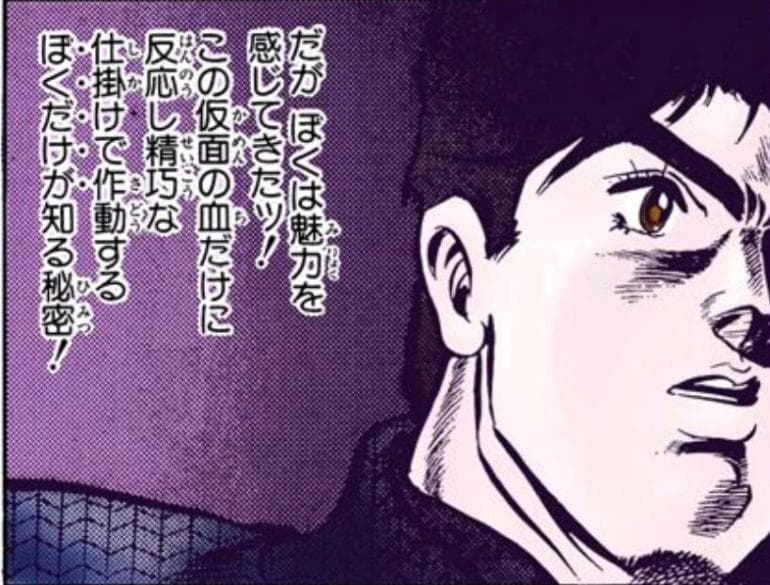So, prior to this panel, JoJo pricks his finger with a knife and lets it fall on this stone mask, and when the blood makes contact with the mask, tendrils shoot out from the back of it in response. I’m confused about the 仮面の血 here, specifically the の. The の does not belong to the mask, what gives? If it were この仮面は僕の血だけに… then I would understand. お願いします!
(血だけに反応し精巧な仕掛けで作動するぼくだけが知る)秘密 seems like the part in brackets all explains the nature of the secret, so the の after 仮面 doesn’t just apply to 血 it applies to the whole sentence up to and including 秘密.
I think that’s it, thank you! I guess it’s saying the mask’s reaction from blood is a secret only I know. I was thinking する was the end of the sentence - it’s hard to tell in jojo because they don’t mark the end of sentences unless it has an exclamation mark.
That’s how I understood it, the operation of the mechanism that reacts to blood is a secret only he knows.
Man, that’s a mouthful of a sentence.
If I’m thinking about it properly, are three things modifying 秘密? i.e. 「この仮面の」「血だけに反応し精巧な仕掛けで作動する」and 「ぼくだけが知る」→ 秘密
My other thought was that the の attached to 仮面 was being used as a nominative case marker within a relative clause (in other words, synonymous with が, for example 「人のいない島」)
So, breaking that sentence down, you’d end up with something like: (この仮面(が・の) 血だけ反応し、精巧な仕掛けで作動する) (ぼくだけが知る)秘密
But I’m not sure that this is the correct way to think about it.
I subscribe more to that second theory, now that you’ve mentioned it. I forgot that の can act as a replacement for が. Again, hard to tell as jojo does not always mark the end of its sentences.

